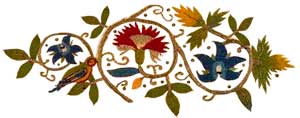 “I shall call myself Alexander, . . . the grandest conqueror the world has ever known.” Chapter III, The Secret Player
“I shall call myself Alexander, . . . the grandest conqueror the world has ever known.” Chapter III, The Secret Player
As Bill Bryson says in his book Shakespeare, The World as Stage, we know very little about the boys who played women in Shakespeare’s plays. They had to have been terrific actors, given the demands of the female roles, from Juliet who takes the initiative with Romeo to those powerful queens Lady Macbeth and Cleopatra, with plenty of spunky gals in between, some of whom disguise themselves as boys.
In The Secret Player, Alexander Cooke, listed in the 1623 First Folio edition of Shakespeare’s plays as ‘one of the principal actors in these plays’, was, in truth, the girl who originated Shakespeare’s most important female roles. [the idea that Cooke originated these roles has been current since at least the 18th century when Edmond Malone advanced it, though no one claims outright that Cooke was born female.]
Cooke’s story is unrelated to the so-called authorship controversy: in The Secret Player, the plays of William Shakespeare were written by the man himself, not the Earl of Oxford, Mary Sidney Herbert, a posthumous Christopher Marlowe, Francis Bacon, Queen Elizabeth nor any other.
The mystery lies with the boy players. We have a handful of names and some records of who went on to become hired men, Alexander Cooke among them, but we know very little about these boys. Their lives intrigued me–particularly if one was female.
Two other sorts of questions caught my imagination at the start. How did Shakespeare create such a rare collection of female characters, utterly unlike those in the plays of his contemporaries? He must have had friendships with unusual women other than his wife Anne Hathaway, who was apparently illiterate and, according to the lore, spent their marriage minding the home fires in Stratford-upon-Avon—or any random mistress in London.
Secondly: what were the possibilities for a spirited girl in that era who couldn’t bear falling into the expected feminine role? A village girl in particular, neither high-born nor wealthy.
So Kate Collins was born, the girl who eventually becomes Alexander Cooke, actor—known, history tells us, as Sander. This idea led me on unexpected paths relating to gender, sex, and the theatre of the times. Many of these became part of the story; others you’ll read on subsequent posts.
For example: what was the extent of literacy and education for girls in Elizabethan England? What women besides the Queen exceeded the limitations placed upon them? How much choice did a girl have in a husband? What were the laws relating to marriage? How common was pre-marital or extra-marital sex and under what circumstances? What was the sexual situation for boy stage players? What connection did women have to the theatre?
And a big one in the case of Alexander Cooke: might a girl successfully pass as a boy? If so, can she ever find the love of a man she dreams of—as a woman? What sorts of sexual complications will she run into on the way?
